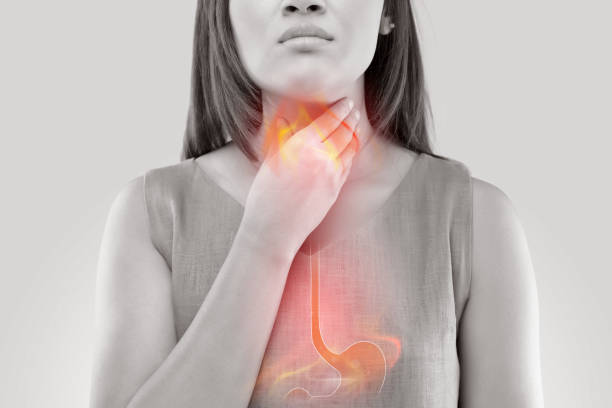Weight gain is a common concern for many people, but did you know it can also significantly worsen acid reflux? If you’re dealing with frequent heartburn or indigestion, excess weight could be a contributing factor. Let’s explore how weight gain impacts acid reflux and what steps you can take to manage both.
What Is Acid Reflux?
Acid reflux occurs when stomach acid flows back up into the esophagus, causing a burning sensation in the chest, commonly known as heartburn. This happens when the lower esophageal sphincter (LES)—a muscle that acts like a valve between the stomach and esophagus—doesn’t close properly.
While acid reflux can happen for various reasons, weight gain is one of the most common risk factors for developing or worsening symptoms.
How Weight Gain Triggers Acid Reflux
Carrying extra weight, especially around the abdomen, puts pressure on your stomach and digestive system. Here’s how it happens:
1. Increased Abdominal Pressure
Excess belly fat can increase pressure on the stomach, which pushes stomach acid upward into the esophagus. This is particularly noticeable when lying down, bending over, or eating a large meal.
2. Weakening the Lower Esophageal Sphincter (LES)
Extra weight can weaken the LES, the muscle responsible for keeping stomach acid where it belongs. When the LES is weakened or relaxed, it becomes easier for acid to escape into the esophagus.
3. Hiatal Hernia Risk
Weight gain increases the risk of developing a hiatal hernia, a condition where part of the stomach pushes through the diaphragm into the chest. This weakens the barrier between the stomach and esophagus, leading to frequent acid reflux.
4. Impact of Poor Diet Choices
Weight gain often results from diets high in fatty, fried, or sugary foods—all of which can trigger acid reflux. These foods take longer to digest and can cause the stomach to produce excess acid.
Managing Weight to Improve Acid Reflux
The good news is that even small weight reductions can significantly improve acid reflux symptoms. Here are some tips to help you manage your weight and reduce acid reflux:
1. Eat Smaller, More Frequent Meals
Large meals pressure your stomach and increase the likelihood of acid reflux. Opt for smaller portions throughout the day to keep digestion smooth and avoid overeating.
2. Choose Acid Reflux-Friendly Foods
Focus on gentle foods on your stomach, such as lean proteins, whole grains, and non-acidic fruits like bananas and melons. Avoid trigger foods like fried foods, spicy dishes, chocolate, and citrus.
3. Incorporate Regular Exercise
Exercise not only supports weight loss but also aids digestion and reduces acid reflux symptoms. Aim for low-impact activities like walking, swimming, or yoga, which are easier on your digestive system.
4. Avoid Eating Before Bed
Lying down too soon after eating can cause acid to flow back up into the esophagus. Try to finish meals at least three hours before bedtime to give your stomach time to digest.
5. Stay Hydrated—But Carefully
Water helps with digestion, but drinking too much during meals can fill your stomach and increase pressure. Sip water throughout the day rather than chugging it during meals.
When to Seek Medical Advice
If you’ve made lifestyle changes and are still experiencing frequent acid reflux, it’s time to consult a healthcare professional. Chronic acid reflux, also known as GERD, can lead to complications like esophagitis or Barrett’s esophagus if left untreated.
A doctor can help you develop a personalized plan that may include dietary advice, medications, or further testing to determine the underlying cause.
Conclusion
Weight gain can contribute to acid reflux by increasing abdominal pressure, weakening the LES, and promoting poor dietary habits. However, taking steps to manage your weight, such as eating smaller meals, exercising regularly, and avoiding trigger foods, can significantly reduce symptoms.
By making small, consistent changes to your lifestyle, you can improve both your weight and digestive health—and say goodbye to the discomfort of acid reflux.

